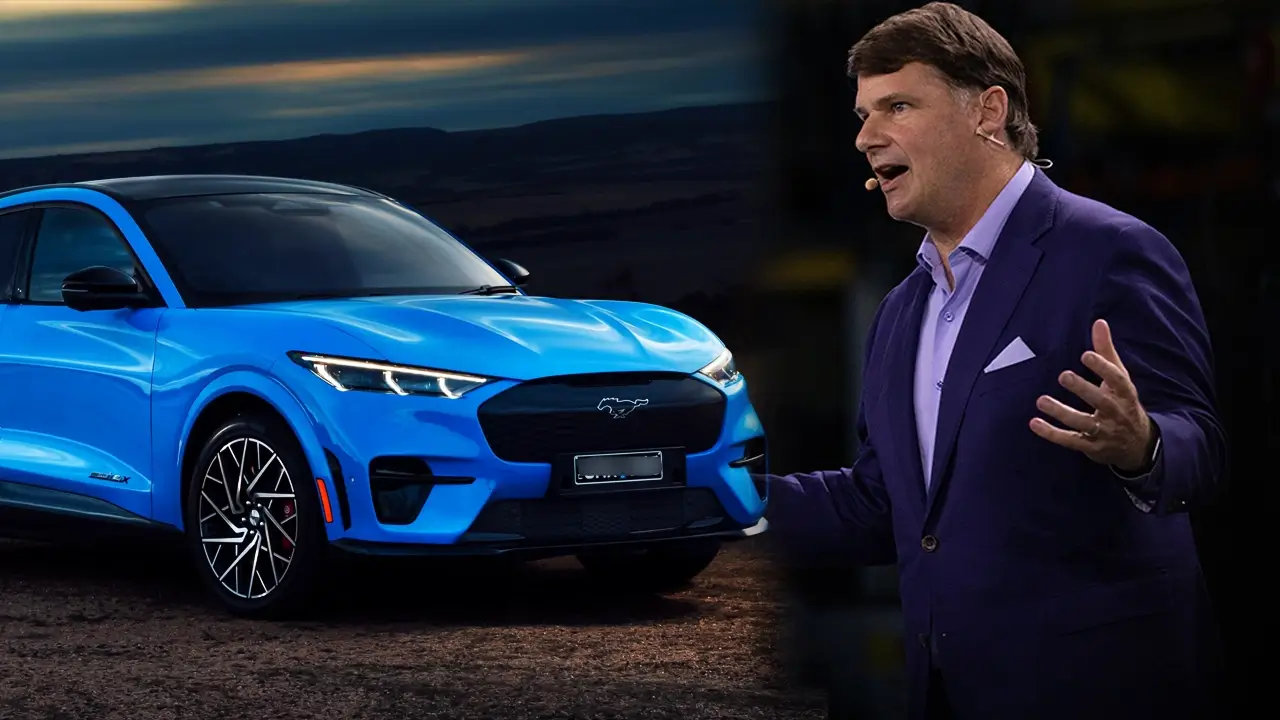In a surprising twist, Ford CEO Jim Farley is urging Americans to rekindle their love for smaller vehicles, a shift that contrasts sharply with the company’s recent history. After Ford phased out sedans and small cars in 2019 to focus on SUVs and pickup trucks, Farley is now extolling the virtues of smaller vehicles. This change comes as the automotive industry transitions to electric vehicles (EVs), and the economics of EV production favor smaller, more affordable models.
The Big Shift: From Monster Vehicles to Compact EVs
Ford has long been synonymous with large vehicles, especially with the F-150 being the best-selling vehicle in the U.S. year after year. However, the push towards EVs has highlighted significant challenges with producing profitable large electric trucks and SUVs. The hefty cost of batteries for these “monster vehicles” makes them financially untenable.
Farley stated, “You have to make a radical change as an automaker to get to a profitable EV. The first thing we have to do is really put all of our capital toward smaller, more affordable EVs.”
The CEO emphasized the impracticality of large EVs, saying, “These big, huge, enormous EVs, they’re never going to make money. The battery is $50,000. … The batteries will never be affordable.” His comments underscore the financial strain of producing large EVs and point towards a future where smaller, more efficient models will dominate.
The EV Conundrum: Weight and Cost
One of the major issues with large EVs is their weight. Heavier vehicles require larger batteries to achieve acceptable ranges, which drives up costs significantly. Farley noted, “We have to start to get back in love with smaller vehicles. It’s super important for our society and for EV adoption […] We are just in love with these monster vehicles, and I love them too, but it’s a major issue with weight.”
Large batteries not only increase production costs but also pose supply chain challenges. As Ford aims to produce a $30,000 EV by 2027, the company recognizes that it must focus on smaller vehicles to make this goal achievable.
- Audi GT50 Concept: A Loud Reminder of Why Car Enthusiasts Fell in Love With Audi
- Nearly 30% of UK Drivers Believe Car Tax Should Be Based on Mileage — Survey
- Why Planes and Boats Escaped the Luxury Tax But Cars Didn’t
- Australia’s Headlight Confusion: Authorities Warn Drivers After Viral $250 Headlight Rule Goes Wild Online
- 2025 Hyundai Venue Facelift Launched in India – Full Details, Variants, and Price
Learning from Global Markets
In markets outside the U.S., small EVs are already proving successful. For instance, China’s Wuling Hong Guang Mini EV and BYD Dolphin Mini are popular models with modest ranges, emphasizing affordability and practicality over long-range capability. These compact EVs cater to urban environments where extensive range is less critical.
Farley acknowledged the competition from these markets, saying, “If we cannot make money on EVs, we have competitors who have the largest market in the world, who already dominate globally, already setting up their supply chain around the world.” This recognition of global competition underscores the urgency for Ford to adapt its strategy and produce profitable small EVs.
Potential Return of Small Cars in the U.S.
Ford’s pivot towards smaller vehicles may herald the return of compact models in the U.S. While it’s unlikely that Ford will produce vehicles as small as the Wuling Hong Guang Mini EV, there is potential for the reintroduction of entry-level cars. Models like the Ford Fiesta ST, Focus SVT, and Escort ZX2, while not imminent, represent the type of vehicles that could make a comeback in an electrified form.
The focus on small cars is not just about profitability but also about meeting the evolving needs of consumers. With growing concerns about environmental impact and the practicalities of urban driving, smaller, more efficient vehicles are becoming increasingly attractive.
The Path Forward for Ford
Ford’s shift in strategy reflects a broader trend in the automotive industry towards sustainability and efficiency. By advocating for smaller vehicles, Farley is positioning Ford to better compete in a future dominated by EVs. The company’s commitment to producing affordable, smaller EVs will not only enhance its competitiveness but also contribute to a more sustainable transportation landscape.
In summary, Ford’s pivot from large vehicles to smaller EVs marks a significant shift in the company’s strategy. As the automotive industry continues to evolve, Ford’s focus on compact, efficient, and affordable electric vehicles will be crucial for its success. Farley’s call for Americans to embrace smaller cars is not just a business strategy but a necessary step towards a more sustainable and profitable future for Ford and the broader automotive industry.

